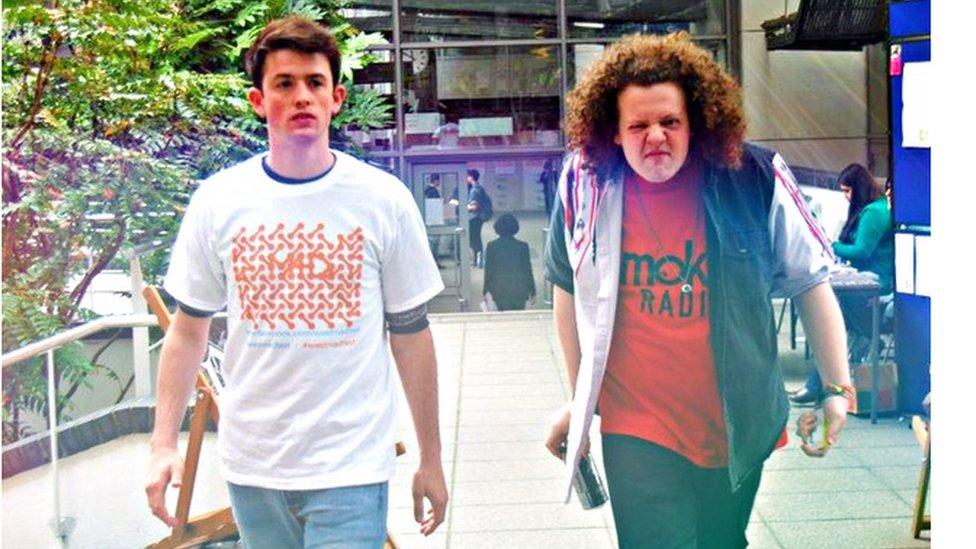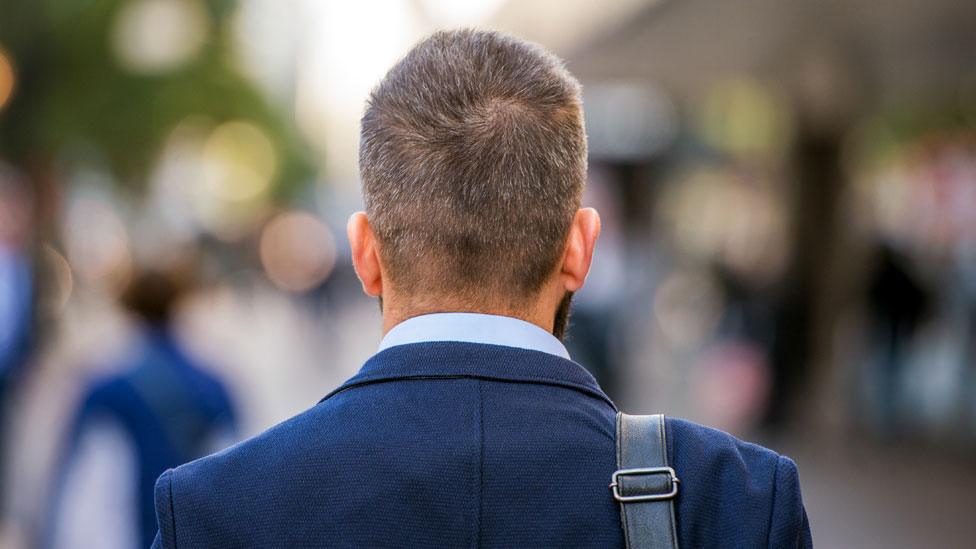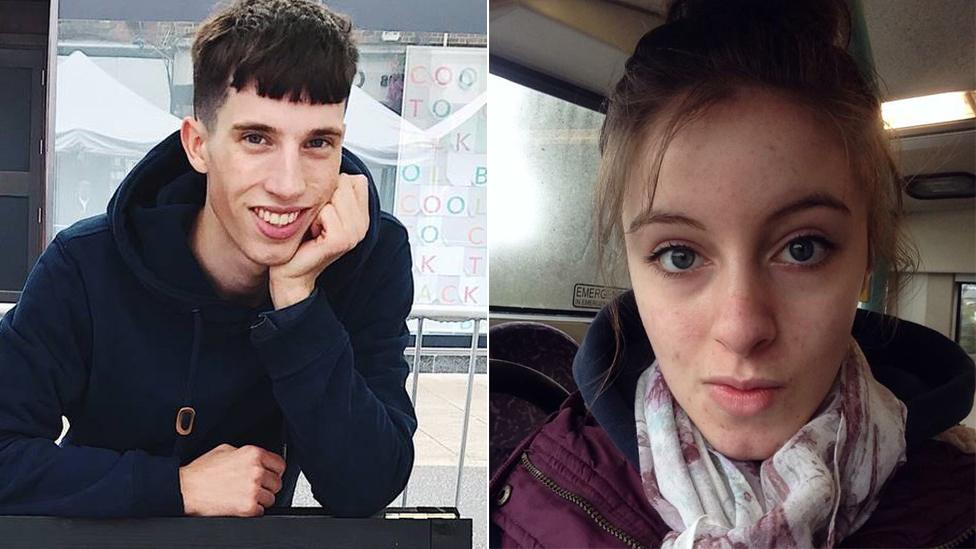Suicide reporting 'should be more sensitive'
- Published

Jack (right) found out about how his friend Olly (left) killed himself in an online article
Campaigners are calling on the media to change the way suicide is reported.
More than 130 public figures have signed a letter calling for a more responsible tone.
Part of the letter urges reporting to avoid detailed descriptions of suicide methods.
The letter, released on World Suicide Prevention Day, has been backed by mental health charities and high-profile figures like Stephen Fry.
'It's a really brutal, cruel thing'
In 2015, comedy writer Jack Rooke found out how his friend Olly killed himself by reading the details online.
"It was just placed there - right in the middle of this online copy - and it was just horrendous," Jack tells Newsbeat. He's now an ambassador for the mental health charity, The Campaign Against Living Miserably., external
"It's a really brutal, cruel thing for anybody to have to have gone through.
"It was just a journalist who was trying to gather all these details, all these bits of information, in a really speculative and unhelpful way to create a bit of content that for me - and a lot of other people - was a really traumatic experience to go through."
Jack has gone on to work in the media, but says the experience stuck with him.

Jack Rooke is now an ambassador for mental health charity CALM.
"We need to have a media which is far more ethical and actual doesn't sensationalise or, in the worst case scenario, glamourise young suicide," he says.
Samaritans guidelines
The charity Samaritans has a set of reporting guidelines for the media when reporting suicide.
These specifically ask journalists to think about the effect of the reporting on audiences - and warn against going into details like the ones Jack read.
A number of studies have shown such reporting can lead to copycat deaths, especially among young people.
"It's unfair that just by googling my friend's name to look at his old blog or website, I'm faced with an article where the methodology is excessively written about," says Jack.
There were almost 6,000 suicides in the UK last year.
'We need to be more sensitive'
Jack says the media needs to change for the sake of young people who struggle with these issues.
"This is a cultural thing which needs to change regardless of politics, regardless of what kind of news outlet you are.
"This is something that is about our society and how we function when tragedy happens. We need to be more sensitive.
"We need to help people who are going through it to recover."
If you are affected by these issues please contact the Samaritans on the free helpline 116 123, or visit the website, external.
Follow Newsbeat on Instagram, external, Facebook, external and Twitter, external.
Listen to Newsbeat live at 12:45 and 17:45 every weekday on BBC Radio 1 and 1Xtra - if you miss us you can listen back here.
- Published4 September 2018

- Published9 March 2018
